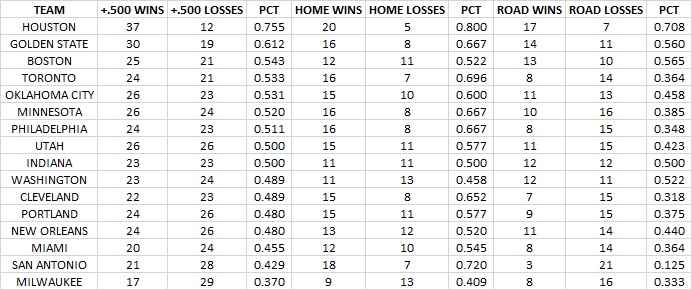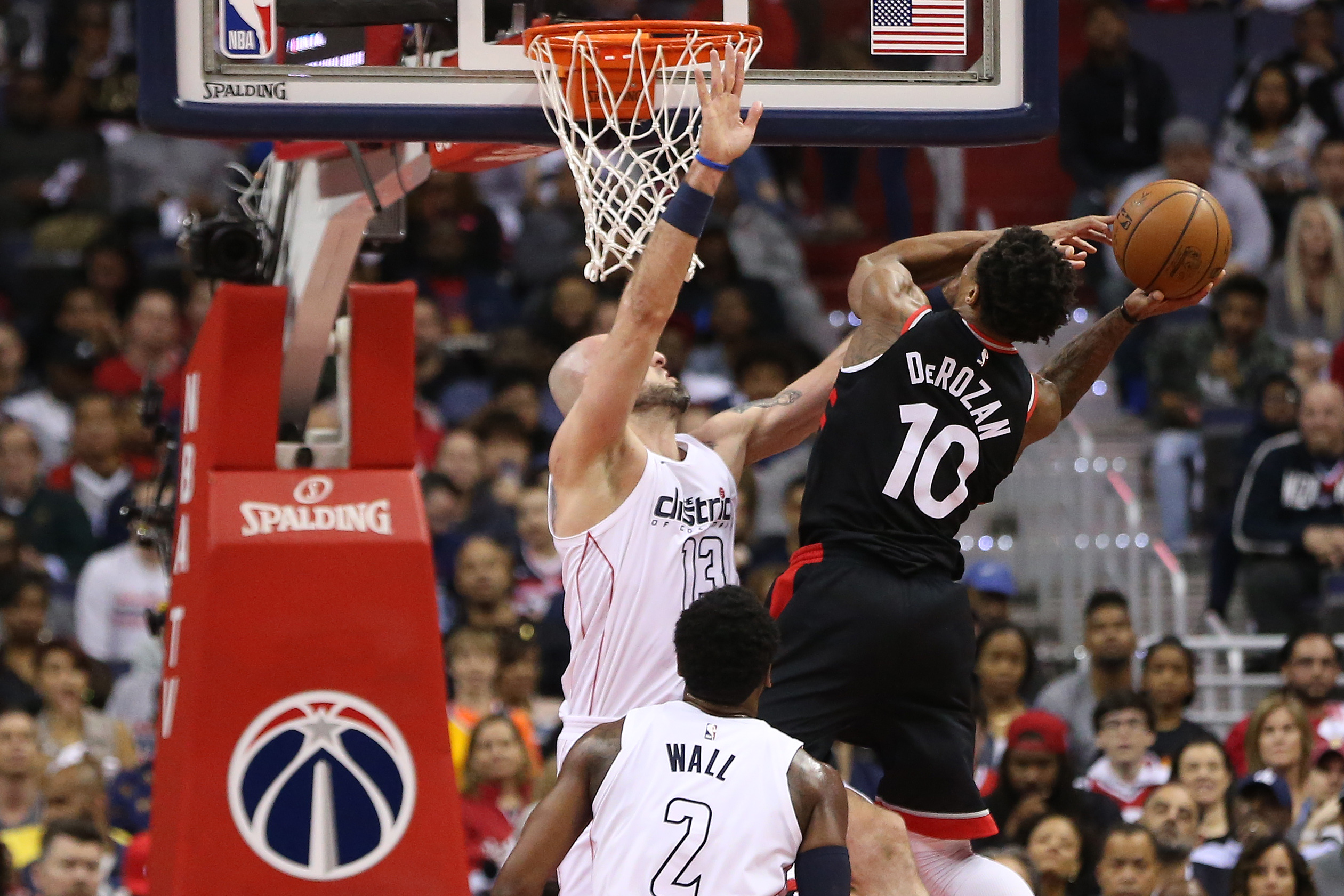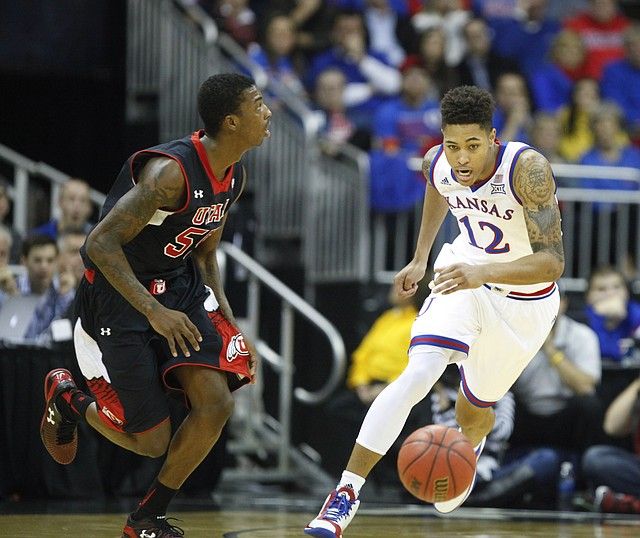It was never supposed to be easy.
When the Toronto Raptors accepted that their archaic offence had gone as far as it could possibly go and that it was time for a change, the plan to implement a system of passing and movement to the extent their words suggested pointed towards a long process.
An overnight overhaul seemed unlikely, and it looked that way to start. The offence crippled in crunch moments against the San Antonio Spurs and Golden State Warriors, before a dispiriting blowout in Denver. Then came the marquee matchup against the Boston Celtics, who had won 11 straight coming into that game. With the game on the line late in the fourth quarter, DeMar DeRozan shot often but made few, and Toronto ultimately had a heartbreaking 95-94 loss to show for it.
Eventually, the Raptors would find their rhythm. The ball hummed across the court, DeRozan was averaging a career-high in assists, and a bench most of the league knew little about was emerging as one of the team’s biggest success stories. They found trouble once again towards the end of the season, and how much of that was playing 13 games in 22 nights and how much of that was just about playing quality opponents is hard to quantify.
What does stand out in this point of time is the fact that the process that looked oh so effortless over 37 games against teams under .500, was only truly tested against the upper class of teams over that mark. The Raptors finished the season an NBA best 35-2 against teams under the .500 threshold, but a fourth-best 24-21 against teams above it.
It’s all added up to the Raptors having significant expectations as the No.1 seed, further warranted by their top-five finishes in both offensive and defensive rating. Head coach Dwane Casey has also reiterated the need to understand that the Washington Wizards are not your stereotypical East eighth seed, so perhaps we do need a bit more context in terms of how this team is viewed.
So, what if we looked at the standings this way, where all the sub-.500 teams are filtered out, and every playoff team is assessed based on how they fared against teams that were competitive enough to stand on their own two feet.

Before we get to the Raptors, ummm, what is with that San Antonio road record? I had to recount it twice to make sure it was right and I still find it hard to believe.
Back to Toronto. Add the five games against the Washington Wizards thus far, and they’ve completed 50 games against plus-.500 opponents, improving to 27-23, but a concerning 8-16 on the road. Their only road wins have come against Portland, Utah, Houston, New Orleans, Philadelphia, Milwaukee, Washington, and Indiana.
The road record, along with some of the bad habits that have creeped into the Raptors’ play late in games indicates that this is a team still very much in transition from who they had been for the past three seasons. In 44 games (25-19) in which the Raptors played “clutch minutes,” they had a minus-3.4 rating with a defensive rating of 108.7. That they finished first in the conference despite that makes the feat all the more impressive.
But, perhaps this explains why they failed to come away with a win in Washington — besides the obvious in-game failings — and that for all their success at home, there are still wrinkles to be ironed out away from their home fans and their own bed to sleep in. Why DeRozan is still adapting to the understanding that his want to win shouldn’t supersede how badly his team wants it as well, why Delon Wright hesitated to shoot on the road in his first playoff series with a significant playoff role.
Serge Ibaka is another example of how expectations have changed because of just how far they’ve come in just one season. Ibaka has often been criticized for clogging up the Raptors’ ball movement, being slow to make decisions, and struggling to make catches and reads on the move.
The fact is, though, that this is his first season playing this style of basketball. His individual development was hindered alongside Kevin Durant and Russell Westbrook, and head coach Dwane Casey has stated time and time again that he has had a lot asked of him considering what his role has been in the past and that he is continuing to make strides.
Not everyone was supposed to come along this quickly. It’s hard to imagine anyone that had the Bench Mob even being worthy of a nickname before the season started. DeRozan making more threes this season than in his last two seasons combined? Even Lowry – who has always had a team-oriented playing style – struggled to adapt to the changes for the first month.
That everyone has come along so quickly around him has made his struggles stick out like a sore thumb. Think of Ibaka as the Raptors’ road record against those plus-.500 teams. Not everything is going to come together in one go, and just because there is the gloss of everything around it to make it seem like the one stuttering aspect is better off discarded, the progress that has been made indicates that it is likely that it’s more about time and greater exposure and experience that will allow his game to progress.
Ibaka has improved his read-and-react decisiveness and his drive game is more of a threat than it was at the beginning of the season. At his best, he still provides his game’s pillars of rim protection and floor spacing. It needs to be more consistent, just as the Raptors need to learn to be just as consistent away from the Air Canada Centre as they are inside it.
As they head to Washington to with the chance to advance to the next round, perhaps those watching with the memories of seasons past need to be a bit more mindful of the fact that this team, despite a lot of the same pieces, is striving to be a different team, and that it won’t just come overnight.



